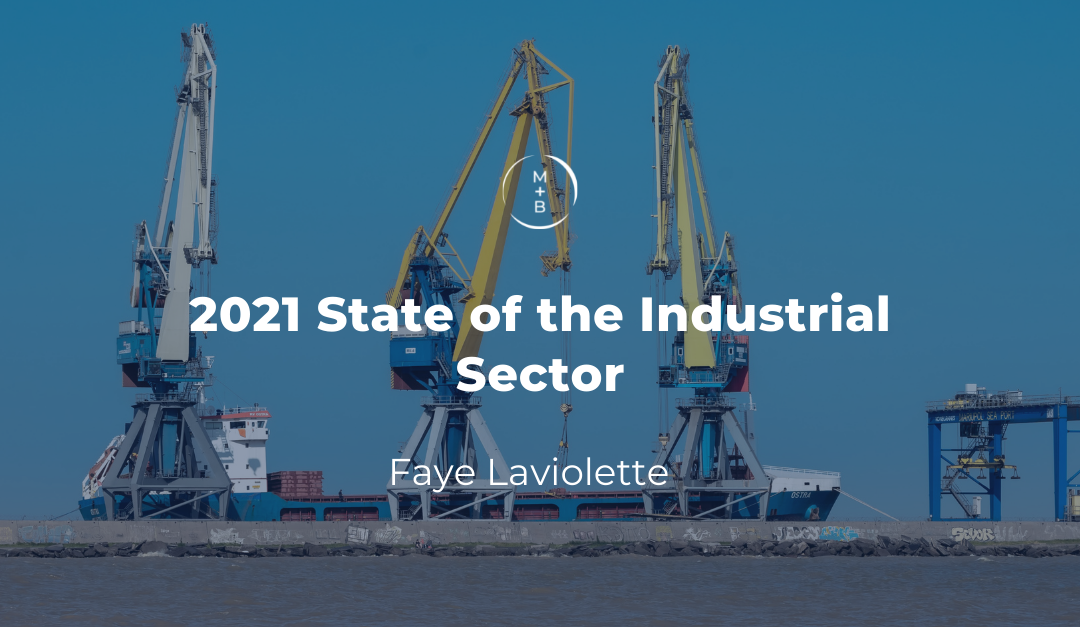THE IMPORTANCE OF THE INDUSTRIAL INDUSTRY IN CANADA
A couple of weeks ago, I was tasked with providing my colleagues across North America with an industry overview and a forward-looking projection of the oil and gas sector in Canada. Keep in mind, my audience was nearly 80% American, 20% Canadian, and a select few experienced oil and gas professionals. This assignment took on a whole new meaning for me. I immediately felt a sense of responsibility to not only convey the importance oil and gas plays in Alberta’s economy, but within Canada’s. This short presentation provided me with a gift. It highlighted my passion for my hometown, Calgary, Alberta, how proud I am to be Canadian, and most importantly, how important this sector is for Canada’s economy. It provided me with certainty and confidence when speaking with industry leaders as I continue to build my brand as the Industrial Practice expert within McDermott + Bull.
Although I have played in this space most of my career, I struggled with where to start. How do I take such a complex topic and provide a 10-15 min overview? How do I educate my Canadian colleagues, not to mention my U.S. colleagues, on the importance our industry has on the global economy? I spent hours reading industry papers, speaking with energy executives, and watching TED Talks about the future of oil and gas in Alberta, within Canada and internationally.
I was then forwarded a talk by Chris Slubicki, President and Chief Executive Officer of Modern Resources. It hit home, made sense, and resonated with me. I felt compelled to watch it several times. Chris puts things into perspective for those of us nontechnical engineers. He talks about the importance and need for energy — all kinds of energy. He discusses how easy it is for consumers to point the finger and blame the oil and gas sector for global warming and increasing emissions, without being aware or acknowledging that 80% of emissions come from us, the consumer. He states, nearly 60% of North Americans will buy an SUV as their next vehicle, and Apple’s CO2 emissions are 40% greater than that of Suncor Energy’s. However, it is the energy sector that is scrutinized. Chris speaks to the challenges we have faced as an industry: the oil price collapse in 2014, increased scrutiny on ESG, ongoing oil price differentials, market access restraints, and new regulatory regimes. He talks about foreign investors exiting, the war on oil in 2020 when Saudi Arabia got into a price war with Russia that led to a market glut. This, paired with the COVID-19 pandemic, reduced demand for energy and led oil prices to historic lows, making it uneconomical for producers.
BY THE NUMBERS
%
of emissions come from us, the consumer
%
of North Americans will buy an SUV as their next vehicle
%
Apple’s CO2 emissions are 40% greater than that of Suncor Energy’s
He speaks not only of the importance oil and gas plays on the overall global economy, but how progressive we are in Alberta when it comes to carbon capture and reducing emissions.
Much like Gurpreet Lail, President and Chief Executive Officer of the Petroleum Services Association of Canada, stated:
The question remains, though — what does all this mean for our industry going forward?
Well, it is believed that post-pandemic, oil prices are expected to surge as the industry plays catch up with global demand. We are starting to see that now with $80 barrel of oil. The demand for fossil fuels is not diminishing. Canada is farther ahead than any of our competitors when it comes to ESG. Banks have forced producers to pay down debt, which in turn has provided positive cash flow and strong balance sheets. Canada has the highest regulatory standards and is the most climate responsible and geopolitically safe worldwide. We have the highest investment in carbon capture and have made successful inroads that are significantly ahead of our international competitors. Renewables are not the perfect solution, yet, but that doesn’t mean we don’t need to work together to create sustainable sources of alternative energy, combined with that of fossil fuels. Let’s be honest, the wind doesn’t always blow, the sun doesn’t always shine, meaning there is still a need for fossil fuels. Canada’s pipeline capacity is going to increase. International markets will then open for Canadian oil, which means increased shipping options, and in turn, increased oil prices. As for today though, let’s focus on celebrating the little wins: oil has nearly doubled in price over the last 12 months!
In summary, I believe Tim McMillan, President and Chief Executive Officer of the Canadian Association of Petroleum Producers, said it best:
The global demand for energy, and with it the demand for natural gas and oil, is growing and will likely surpass pre-pandemic levels within two years and is expected to grow for decades to come. With our continuous emissions intensity reductions and our leading role in clean technology investments in Canada, the industry has demonstrated that we are committed to playing a pivotal role in helping Canada meet its stated emissions reduction goals and that Canada’s industry is capable of supplying affordable, reliable, and cleaner energy to a growing global population.
About the Author
Faye Laviolette
Principal
flaviolette@mbexec.ca
Faye serves as a Principal of McDermott + Bull Canada and is a member of the firm’s Industrial Practice. She brings over 15 years of experience in executive search and human resources and specializes in delivering best-in-class executive-level talent across North America. Her practice focuses primarily on the energy and natural resources sectors, in addition to the technology, consumer, and professional services industries.


